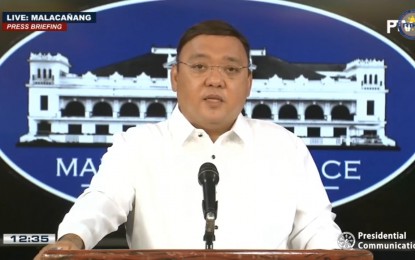News
Palace rejects study tagging Duterte as ‘medical populist’
MANILA – Malacañang on Wednesday rejected a study which attributed the “medical populist” leadership style of President Rodrigo Duterte for the country’s alleged failure to suppress the coronavirus disease (Covid-19) pandemic.
Presidential Spokesperson Harry said Duterte and members of the Inter-Agency Task Force for the Management of Emerging Infectious Diseases (IATF-EID) have been guided by “science” and “hard data” in the government’s fight against the deadly virus.
“The President, together with the members of the Inter-Agency Task Force, has met the challenges of Covid-19 head-on, with science and hard data guiding the Chief Executive’s decisions and actions, contrary to the ‘medical populism’ leadership style issue raised by some quarters,” he said in a statement.
Roque said “concrete interventions” to slow down the Covid-19 infection rate have also been put in place.
“The Duterte Administration has put in place concrete interventions to reduce the spread of the coronavirus, which includes ramping up the country’s testing capacity, enhancing contact tracing efforts, and scaling up of local health system capacity, especially for community isolation and critical care,” he said.
He also pointed out that a “whole-of government” and “whole-of-society” approaches are implemented to manage the health crisis.
“The national government’s approach is whole-of-government and whole-of-society, where every sector from public health to economics has been consulted, to ensure that the adverse impact of the Covid-19 pandemic is addressed in our National Action Plan,” he added.
Lancet Covid-19 Commission, which also named Brazilian President Jair Bolsonaro of Brazil and US President Donald Trump, earlier ranked the Philippines 66th out of 91 countries in terms of controlling the transmission of the virus, because of Duterte’s “medical populist” style of leadership.
The study, released in time for the 75th anniversary of the United Nations General Assembly, drew from the study of medical anthropologist Gideon Lasco.
It described political leaders resorted to “simplifying the pandemic by downplaying its impacts or touting easy solutions or treatments, spectacularizing their responses to crisis, forging divisions between the ‘people’ and dangerous ‘others,’ and making knowledge claims to support the above.”
“All countries should combat decisions based on rumor-mongering and misinformation. Leaders should desist from expressing personal viewpoints that are at odds with science,” the commission said.
According to the study, a country was able to suppress the transmission of the virus if there were five or fewer cases per million pollution per day in August, those with “low” transmission are countries with 10 or fewer new cases per million population per day, and those with “moderate transmission” are nations with 10 to 50 new infections per million per day.
The Philippines falls under the “moderate” category with 37.5 new daily cases per million population in August.
As of Wednesday, Covid-19 cases in the country rose to 294,591, of which 5,091 are deaths and 231,373 are recoveries.


